Ha preso ufficialmente il via, nella sede di Tricase del CIHEAM Bari, la sesta edizione del corso avanzato internazionale di specializzazione Sviluppo sostenibile delle comunità costiere organizzato dal CIHEAM Bari, con il supporto tecnico della FAO e della Commissione Generale per la Pesca nel Mediterraneo (GFCM), e finanziato dal Ministero degli Affari Esteri e della Cooperazione Internazionale.
Dal 5 maggio all’11 luglio 2025, venti funzionari provenienti da sedici Paesi di quattro continenti - Albania, Egitto, El Salvador, Eritrea, Ghana, Kenya, Libano, Libia, Mauritania, Mozambico, Senegal, Sudan, Tanzania, Tunisia e Vietnam - parteciperanno a un’esperienza formativa intensiva e interattiva, volta a promuovere soluzioni concrete e condivise, per affrontare le sfide dello sviluppo sostenibile delle comunità costiere.
Obiettivo del corso è fornire competenze avanzate per progettare e sviluppare strategie efficaci per la gestione integrata delle aree costiere, promuovendo l’economia blu e la salvaguardia del patrimonio ambientale e culturale locale. Il programma si fonda su un approccio intersettoriale e partecipativo che integra teoria e pratica, attraverso lezioni, workshop, casi studio e visite sul campo.
La sede di Tricase del CIHEAM Bari e il Porto Museo di Tricase si trasformano per dieci settimane in un laboratorio di confronto globale e co-apprendimento, in cui docenti, esperti e partecipanti condividono esperienze e buone pratiche da tutto il mondo. Il dialogo tra culture e territori diventa leva di crescita per costruire modelli innovativi di sviluppo locale e sostenibile.
Il corso affronta quattro sfide centrali per il futuro delle comunità costiere che riguardano la gestione sostenibile delle risorse naturali, la pesca artigianale, acquacoltura e diversificazione economica, l’adattamento ai cambiamenti climatici e la valorizzazione della tradizione, cultura, innovazione sociale e sviluppo locale.
Tra i principali risultati attesi vi sono capacità di progettare iniziative integrate e multisettoriali, acquisizione di competenze sulle migliori pratiche in pesca sostenibile, acquacoltura, agricoltura integrata, ecoturismo e valorizzazione del patrimonio, rafforzamento di reti regionali e internazionali per la cooperazione tra istituzioni e comunità costiere.
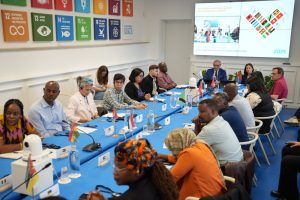
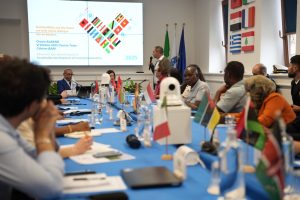
Guidati da esperti di istituzioni accademiche, centri di ricerca, ONG e agenzie di sviluppo internazionali, i partecipanti saranno protagonisti di un processo di apprendimento reciproco, finalizzato alla co-creazione di soluzioni adattate ai contesti locali.
La cerimonia di apertura del corso si è tenuta il 5 maggio nella sede di Tricase del CIHEAM Bari, alla presenza di istituzioni e rappresentanti dei Paesi partecipanti. L’incontro è stato moderato da Massimo Zuccaro, coordinatore del corso per il CIHEAM Bari. I saluti istituzionali sono stati affidati a Maurizio Raeli, direttore del CIHEAM Bari, e Miguel Bernal, segretario esecutivo della Commissione generale per la pesca nel Mediterraneo (CGPM/FAO).
Olimpia Antonelli, responsabile dell’Ufficio Formazione del CIHEAM Bari, ha illustrato le attività di formazione avanzata dell’Istituto.
A concludere la cerimonia, gli interventi di Richard Oginga Abila, senior global technical specialist – Fisheries & Aquaculture dell’IFAD, e Grammenos Mastrojeni, vicesegretario generale dell’Unione per il Mediterraneo.
Ha preso il via lo scorso 7 aprile, nella sede dell’Acquedotto Pugliese di Bari, un corso di formazione mirato a potenziare le competenze tecniche di giovani laureati provenienti da Algeria, Egitto, Etiopia, Kenya, Libano, Tunisia.
L'obiettivo principale del percorso formativo è contribuire alla promozione di una gestione sostenibile delle risorse idriche, con particolare attenzione al miglioramento delle pratiche di approvvigionamento, trattamento e riutilizzo delle acque reflue in agricoltura.
Il programma di formazione è stato sviluppato dalla sede italiana del Centro Internazionale di Alti Studi Agronomici Mediterranei (CIHEAM Bari), in collaborazione con l'Acquedotto Pugliese e il Dipartimento di Ingegneria Civile, Ambientale, del Territorio, Edile e di Chimica (DICATECh) del Politecnico di Bari.
Il corso breve rientra nelle attività della International Water School, un'iniziativa dedicata allo scambio di conoscenze e competenze nel campo dell'utilizzo delle risorse idriche, che spazia dall'approvvigionamento di acqua potabile fino al suo impiego come catalizzatore dello sviluppo territoriale.
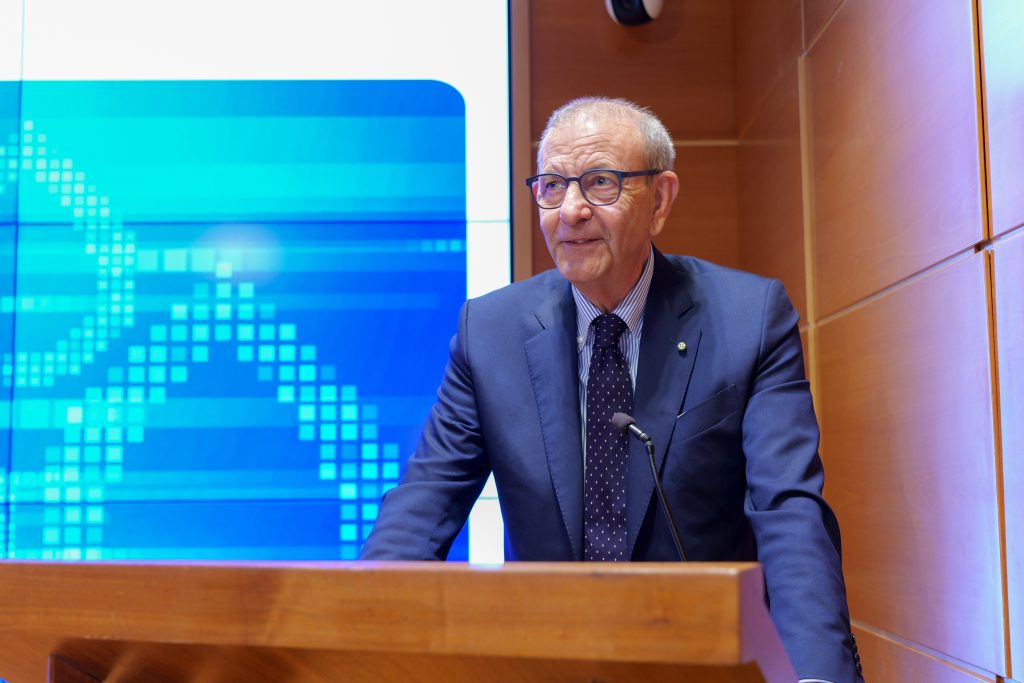
«Una scommessa nata qualche anno fa: quella di creare una vera e propria scuola internazionale dedicata all’acqua. – ha dichiarato il direttore del CIHEAM Bari - Maurizio Raeli - a latere della cerimonia di consegna dei diplomi che si è tenuta l’11 mattina nella sede dell’AQP di Bari- L’idea è di mettere insieme un'intera filiera di competenze, coinvolgendo realtà come il CIHEAM Bari, per rafforzarne l’attività internazionale, l’Acquedotto Pugliese e il Dicatech. L’obiettivo è offrire ai ragazzi una formazione completa, che copra tutti gli aspetti della gestione dell’acqua, dagli usi civili a quelli irrigui. Si tratta di un momento di aggregazione importante e, soprattutto, utile, che permette ai partecipanti di sviluppare una visione ampia e sostenibile della gestione delle risorse idriche, acquisendo al tempo stesso competenze tecniche e specifiche».
Il gruppo di giovani laureati, composto da quattro ragazze e sette ragazzi, hanno partecipato alle lezioni che si sono svolte, dal 7 all’11 aprile, sia nel Campus del CIHEAM Bari, sia nelle sedi dell’AQP, e alle visite tecniche agli impianti di depurazione e trattamento dei reflui.
Il focus principale dello studio ha riguardato il trasferimento delle migliori pratiche di economia circolare, con particolare attenzione al riuso delle acque reflue depurate nell'ambito agricolo. In questo contesto, l’esperienza dell’Acquedotto Pugliese nella gestione delle acque depurate e il contributo del CIHEAM Bari nell’evidenziare la transizione dal semplice trattamento all’effettivo impiego delle acque in agricoltura hanno rappresentato elementi chiave del percorso formativo.
Questa iniziativa rappresenta un passo significativo verso la promozione di pratiche agricole eco-friendly e la gestione sostenibile delle risorse idriche.
Contribuendo a un futuro più resiliente e responsabile, il corso si propone di avere un impatto positivo duraturo su ambiente e comunità.
La cerimonia di consegna dei diplomi si è svolta nella sala conferenze dell’AQP di Bari alla presenza, tra gli altri, del presidente Domenico Laforgia, e del direttore del DICATECh, Leonardo Damiani.
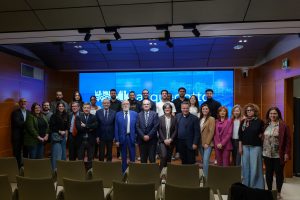
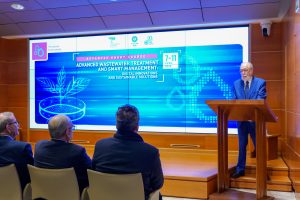
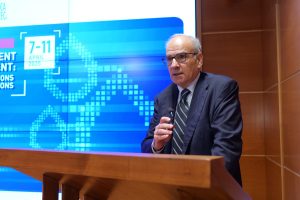
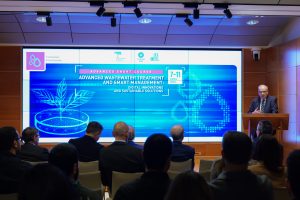
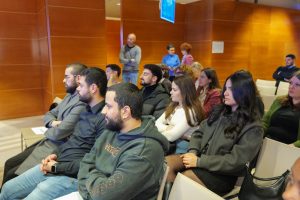

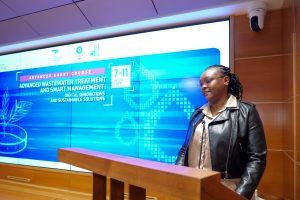
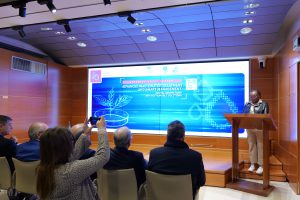
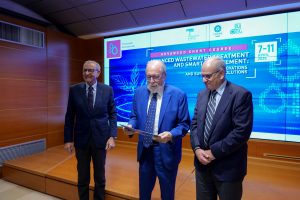
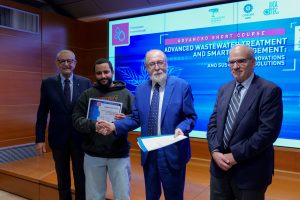
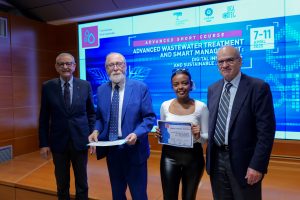
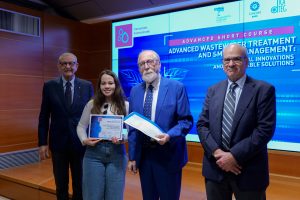
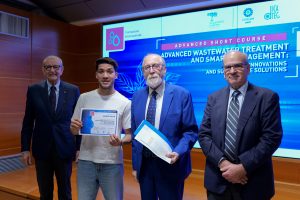
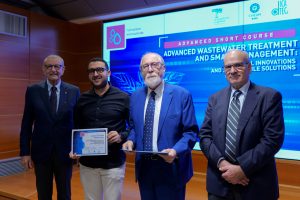
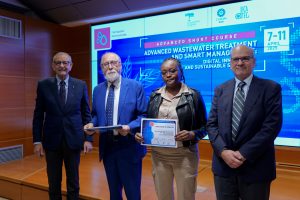
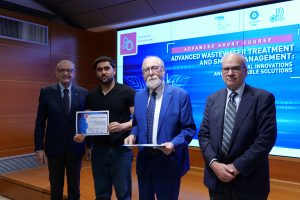
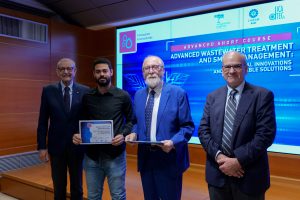
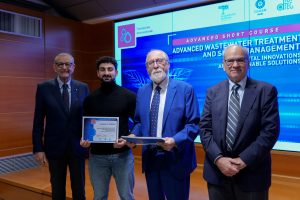
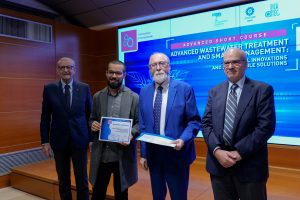
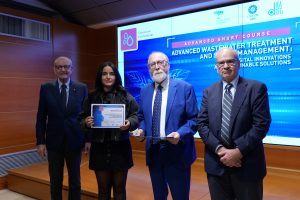
Rafforzare la cooperazione tra Italia e i Paesi dell’Oceano Indiano per promuovere la sicurezza, la sostenibilità e la diversificazione economica delle attività legate alla pesca è stato l’obiettivo del corso di formazione specialistica che si è svolto dal 7 all’11 aprile nelle sedi di Bari e Tricase del CIHEAM.
Il workshop, Approcci innovativi alla gestione della pesca per promuovere la sicurezza, la sorveglianza e la diversificazione economica nei Paesi IORA, rappresenta un'importante tappa del partenariato di dialogo tra l’Italia e l’Indian Ocean Rim Association (IORA).
Organizzata dal CIHEAM Bari, l’iniziativa è stata promossa dal Ministero degli Affari Esteri e della Cooperazione Internazionale, con il coordinamento del Segretariato IORA-sede Mauritius.
Grazie alla consolidata esperienza nella gestione sostenibile della pesca, il CIHEAM Bari, in particolare con la sua sede operativa di Tricase, è diventato un centro di riferimento internazionale per la formazione e la cooperazione in ambito marino. Negli anni, l’Istituto ha attivato numerose collaborazioni internazionali, confermando il suo ruolo strategico come punto di incontro tra istituzioni, comunità e operatori del settore.
Il corso ha coinvolto dieci esperti e funzionari provenienti da India, Kenya, Sudafrica, Emirati Arabi Uniti, Maldive, Malesia e Oman, tra cui rappresentanti ministeriali, autorità marittime, esperti di sicurezza in mare e leader di comunità costiere. Il programma, articolato in lezioni frontali, laboratori pratici e visite sul campo, ha avuto l’obiettivo di trasferire competenze e buone pratiche, già consolidate nel contesto mediterraneo. I partecipanti hanno visitato il porto di Castro, la Scuola per l’Ospitalità di Santa Cesarea Terme, le capitanerie di porto di Bari e Molfetta e la stazione satellitare della Guardia Costiera, grazie alla collaborazione con la Direzione Marittima di Bari.
Durante i quattro giorni di attività, l’attenzione si è focalizzata su temi centrali come l’innovazione tecnologica nella pesca, l’impiego di strumenti ecologici, il monitoraggio delle attività marittime e il rafforzamento della sicurezza in mare, con particolare attenzione ai casi di studio provenienti dalla regione IORA.
Questa iniziativa dimostra l’impegno concreto dell’Italia a sostegno dello sviluppo sostenibile delle risorse marine e del consolidamento dei rapporti di cooperazione internazionale nel settore. Il CIHEAM Bari, con il suo polo di Tricase, continua così a svolgere un ruolo strategico nel promuovere il dialogo tra i Paesi costieri e nel costruire un futuro più sicuro, inclusivo e rispettoso dell’ambiente marino.
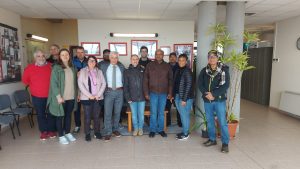
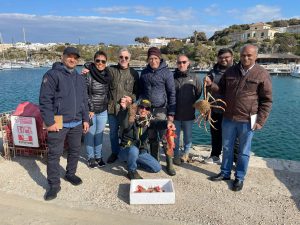
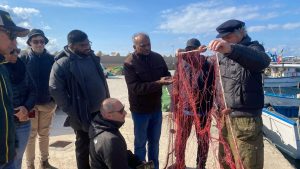
As part of our SANET project, funded by Italian Agency for Development Cooperation and implemented by CIHEAM Bari in collaboration with the Palestinian Ministry of Agriculture (MoA), we are pleased to announce the launch of several essential training courses.
The project focuses on fostering sustainable agricultural development, enhancing food security and strengthening agricultural value chains in Palestine.
Towards this end, these 10 training courses are designed to empower farmers and producers with practical skills and knowledge tailored to their specific needs.
The first course, focusing on Good Agricultural Practices for the Plum Value Chain, is being held over three days in North Hebron (Hebron) and Jenin (Kabatya). This course covers cultivation, management, and postharvest practices for Plum fruit.
The second course, dedicated to Good Agricultural Practices for Fodder and Feed for Livestock, is also a three-day program taking place in Jericho, Tubas, and Dora, focusing on fodder production, management, and techniques to support livestock health and productivity.
In addition, a series of training sessions on Postharvest Handling and Storage Practices will be held over three days at various locations, including North Hebron (Hebron), Jenin (Kabatya), Jericho, Tubas, and Dora. These sessions will address key aspects such as postharvest loss prevention, efficient storage techniques, and quality management for both stone fruits and fodder crops.
Designed to incorporate both theoretical lessons and practical experiences, these courses will feature site visits and hands-on activities to enhance the learning experience.
The programs target farmers, producers, cooperatives, NGOs, young researchers, and graduate students who are keen to expand their knowledge in agriculture and postharvest management. Through these initiatives, we aim to contribute to the long-term sustainability and increased productivity of the agricultural sector in Palestine.
For more information, please contact Project Manager Lorenzo Melozzi at: melozzi@iamb.it.
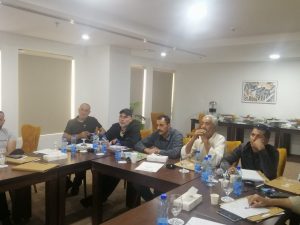
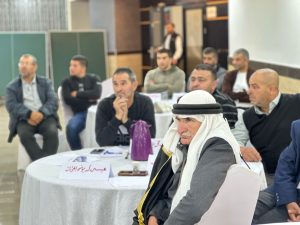
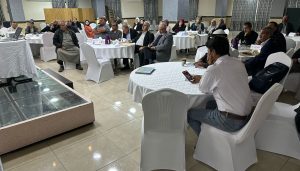
Il settore agroalimentare rappresenta una risorsa fondamentale per l'economia della Puglia, ma alcuni aspetti, come i sottoprodotti della lavorazione dell'olio d'oliva e del vino, vengono spesso trascurati. La sansa, le vinacce e i raspi, tradizionalmente considerati rifiuti, possono invece diventare la base per lo sviluppo di nuovi bio-prodotti, generando valore economico e riducendo l'impatto ambientale. Questo è il tema del Living Lab, II Workshop Regionale - Puglia Hub, che si terrà il prossimo 7 aprile al CIHEAM Bari (MED HUB Conference Room), dalle 9.30 alle 13.30.
Organizzato dal CIHEAM Bari, in collaborazione con il Bio-distretto delle Lame, nell'ambito del progetto ROBOCOOP-EU, il workshop mira a coinvolgere attivamente ricercatori, imprese, decisori politici e società civile per sviluppare modelli di business innovativi legati alla bioeconomia.
L'incontro prevede una sessione interattiva per valutare il livello di conoscenza e consapevolezza dei partecipanti sull'argomento, seguita da una discussione di gruppo basata sulla metodologia Living Lab. Questo approccio collaborativo consente di far dialogare cittadini, istituzioni e aziende per co-creare soluzioni efficaci e sostenibili.
I lavori saranno aperti dai saluti istituzionali di Maurizio Raeli (direttore del CIHEAM Bari), Francesco Brandi (assessore Agricoltura del Comune di Bitonto) e Benedetto Fracchiola (presidente di Finoliva e del Bio-distretto delle Lame, Ruvo di Puglia).
Gli esperti del CIHEAM Bari, Maroun El Moujabber e Noureddin Driouech, illustreranno rispettivamente il progetto Roboccop-EU e i modelli di business adottabili dalle agro-cooperative.
La parte tecnica del workshop sarà dedicata alle tecnologie e ai processi di valorizzazione dei sottoprodotti dell'olio e del vino. Interverranno esperti del settore, come Antonio Trani (CIHEAM Bari), che illustrerà le strategie per trasformare i sottoprodotti in risorse, e Graziana Difonzo (Università di Bari Aldo Moro), che parlerà delle loro applicazioni nel settore alimentare.
A seguire, i partecipanti prenderanno parte a una tavola rotonda interattiva, articolata in quattro gruppi di lavoro, ciascuno focalizzato su un modello di business specifico: Potenziamento dei flussi di rifiuti prodotti internamente, per ridurre gli sprechi trasformandoli in nuove risorse; Bioraffineria specializzata in biomassa ad alto valore aggiunto, con focus su nutraceutici, cosmetici e biopolimeri; Bioraffineria cooperativa, per un modello condiviso tra agricoltori e stakeholder locali; Cluster industriale, per favorire la collaborazione tra aziende e istituzioni.
Attraverso la metodologia Living Lab si cercherà di delineare i passi futuri per integrare i sottoprodotti dell'olio e del vino in un ciclo produttivo circolare e sostenibile.
Il progetto ROBOCOOP-EU, co-finanziato da HORIZON EUROPE e CIRCULAR BIO-BASED EUROPE, punta a rivoluzionare il settore agricolo attraverso modelli di business regionali innovativi. L'obiettivo è creare bioraffinerie sostenibili e redditizie, validando 17 nuovi prodotti bio-based e riducendo significativamente le emissioni di gas serra.
Grazie a iniziative di questo tipo, la bioeconomia sta acquisendo un ruolo sempre più centrale, trasformando i sottoprodotti agricoli in risorse ad alto valore per settori strategici. Un progresso significativo verso un futuro più sostenibile e innovativo che mira a incentivare un cambiamento culturale nel settore agroalimentare, promuovendo pratiche sostenibili e una gestione più efficiente delle risorse.
Su iniziativa del MAECI dal 7 all'11 aprile, nelle sedi del CIHEAM Bari e Tricase (Lecce), si svolgerà il corso di formazione specialistica di alto livello Approcci innovativi alla gestione della pesca: Promuovere la sicurezza, la sorveglianza e la diversificazione economica nei Paesi IORA. L'iniziativa rientra nelle attività di capacity building realizzate dal MAECI per rafforzare il partenariato di dialogo tra l'Italia e l'Indian Ocean Rim Association (IORA), promuovendo modelli sostenibili di gestione della pesca consolidati nell'area mediterranea.
Il programma prevede lezioni frontali e attività interattive, visite di studio e sessioni di discussione con l’obiettivo di trasferire conoscenze tecniche e buone pratiche ai partecipanti, per migliorare e modernizzare il settore della pesca nei Paesi Membri della IORA.
Il corso sarà suddiviso in diverse sessioni, che si terranno in varie località: il 7, 8 e 9 aprile tra la sede di Tricase del CIHEAM Bari, il porto di Castro e la Scuola professionale per l'ospitalità e il turismo di Santa Cesarea Terme. Il 10 e l’11 aprile, grazie alla collaborazione con la Direzione Marittima di Bari, le sessioni formative si svolgeranno nelle capitanerie di porto di Bari e Molfetta, seguite dalla visita alla stazione satellitare italiana COSPAS-SARSAT della base navale della Guardia Costiera.
Il programma di formazione è rivolto a 10 funzionari -provenienti da Emirati Arabi Uniti, India, Kenya, Maldive, Malesia, Oman e Sud Africa-, tra cui rappresentanti dei Ministeri della pesca, delle risorse marine e dell’ambiente, dirigenti di autorità marittime e portuali, operatori coinvolti nel monitoraggio, controllo e sorveglianza (MCS), esperti di sicurezza sul lavoro nel settore marittimo, decisori politici e regionali, oltre a leader delle comunità costiere e delle cooperative di pesca.
Durante la cinque giorni di lavori, saranno trattate diverse tematiche, tra cui l'innovazione tecnologica applicata alla pesca sostenibile, l'analisi di nuovi strumenti e metodi per pratiche di pesca ecocompatibili. Saranno inoltre approfonditi strumenti e soluzioni avanzate nella pesca sostenibile, con analisi partecipativa di casi di studio nell'Oceano Indiano.
L'iniziativa testimonia l'impegno dell'Italia nel rafforzare la collaborazione con la IORA, condividendo esperienze e migliori prassi per costruire un futuro più sostenibile nella gestione delle risorse marine nella Regione dell’Oceano Indiano.